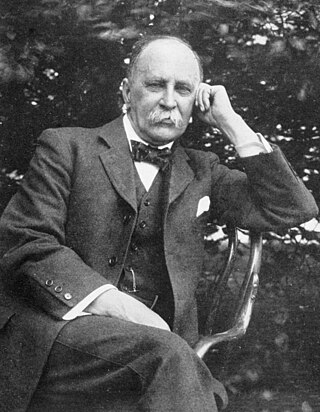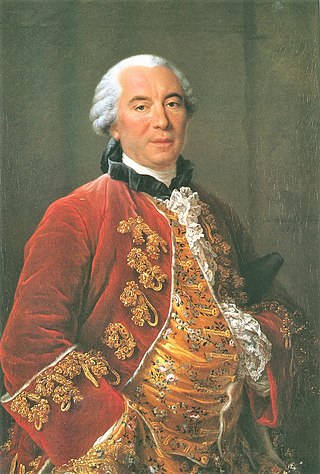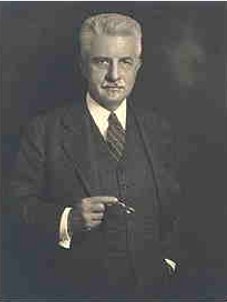Related Research Articles
Zoology is the scientific study of animals. Its studies include the structure, embryology, classification, habits, and distribution of all animals, both living and extinct, and how they interact with their ecosystems. Zoology is one of the primary branches of biology. The term is derived from Ancient Greek ζῷον, zōion ('animal'), and λόγος, logos.

Sir William Osler, 1st Baronet, was a Canadian physician and one of the "Big Four" founding professors of Johns Hopkins Hospital. Osler created the first residency program for specialty training of physicians, and he was the first to bring medical students out of the lecture hall for bedside clinical training. He has frequently been described as the Father of Modern Medicine and one of the "greatest diagnosticians ever to wield a stethoscope". In addition to being a physician he was a bibliophile, historian, author, and renowned practical joker. He was passionate about medical libraries and medical history, having founded the History of Medicine Society, at the Royal Society of Medicine, London. He was also instrumental in founding the Medical Library Association of Great Britain and Ireland, and the Association of Medical Librarians along with three other people, including Margaret Charlton, the medical librarian of his alma mater, McGill University. He left his own large history of medicine library to McGill, where it became the Osler Library.

Natural history is a domain of inquiry involving organisms, including animals, fungi, and plants, in their natural environment, leaning more towards observational than experimental methods of study. A person who studies natural history is called a naturalist or natural historian.

Georges-Louis Leclerc, Comte de Buffon was a French naturalist, mathematician, and cosmologist. He held the position of intendant (director) at the Jardin du Roi, now called the Jardin des plantes.

Pieter Boddaert was a Dutch physician and naturalist.

Arthur Oncken Lovejoy was an American philosopher and intellectual historian, who founded the discipline known as the history of ideas with his book The Great Chain of Being (1936), on the topic of that name, which is regarded as 'probably the single most influential work in the history of ideas in the United States during the last half century'. He was elected to the American Philosophical Society in 1932. In 1940, he founded the Journal of the History of Ideas.

Hayden V. White was an American historian in the tradition of literary criticism, perhaps most famous for his work Metahistory: The Historical Imagination in Nineteenth-Century Europe (1973/2014).

Comparative politics is a field in political science characterized either by the use of the comparative method or other empirical methods to explore politics both within and between countries. Substantively, this can include questions relating to political institutions, political behavior, conflict, and the causes and consequences of economic development. When applied to specific fields of study, comparative politics may be referred to by other names, such as comparative government.

The Johns Hopkins University School of Medicine (JHUSOM) is the medical school of Johns Hopkins University, a private research university in Baltimore, Maryland. Founded in 1893, the School of Medicine shares a campus with Johns Hopkins Hospital and Johns Hopkins Children's Center, established in 1889.

William Henry Welch was an American physician, pathologist, bacteriologist, and medical-school administrator. He was one of the "Big Four" founding professors at the Johns Hopkins Hospital. He was the first dean of the Johns Hopkins School of Medicine and was also the founder of the Johns Hopkins School of Hygiene and Public Health, the first school of public health in the country. Welch was more known for his cogent summations of current scientific work, than his own scientific research. The Johns Hopkins medical school library is also named after Welch. In his lifetime, he was called the "Dean of American Medicine" and received various awards and honors throughout his lifetime and posthumously.
Richard S. Westfall was an American academic, biographer and historian of science. He is best known for his biography of Isaac Newton and his work on the scientific revolution of the 17th century.

Alexander Frank Skutch was a naturalist and writer. He published numerous scientific papers and books about birds and several books on philosophy. He is best remembered ornithologically for his pioneering work on helpers at the nest.

Owsei Temkin was William H. Welch Professor Emeritus of the History of Medicine at Johns Hopkins University. He was a Russian-born, German-educated, American medical historian.
Margaret J. "Maggie" Osler was a historian and philosopher of early modern science and a professor of history at the University of Calgary.
Paul Rodney McHugh is an American psychiatrist, researcher, and educator. He is currently the University Distinguished Service Professor of Psychiatry at the Johns Hopkins University School of Medicine and the author, co-author, or editor of seven books in his field.

Henry Mills Hurd was the first director of the Johns Hopkins Hospital and remained in that post for 22 years (1889–1911) following which he was appointed Secretary to the Board of Trustees (1911–1927). He was also the first Professor of Psychiatry at the medical school from its opening in 1893 until 1905.

August Hoch was a Swiss–American psychiatrist who was the third director of the New York State Psychiatric Institute in New York City from 1 February 1910 to 1 October 1917. As a neuropathologist and clinician, he exerted his influence on psychiatric developments during the early 20th century in the United States.
Edward J. Benz Jr. is the former president of Dana–Farber Cancer Institute in Boston, Massachusetts., and the Richard and Susan Smith Professor of Medicine as well as a professor of genetics at Harvard Medical School.

Margaretta Hare Morris was an American entomologist. Morris and the astronomer Maria Mitchell were the first women elected to the American Association for the Advancement of Science in 1850. She was also the second woman elected to the Academy of Natural Sciences of Philadelphia in 1859, after Lucy Say.

Wallace Bruce Fye is an American retired cardiologist, medical historian, writer, bibliophile and philanthropist. He is emeritus professor of medicine and the history of medicine at the Mayo Clinic, Rochester, Minnesota and was the founding director of the institution's W. Bruce Fye Center for the History of Medicine.
References
- 1 2 3 4 "Catalogue Information - Paul Lawrence Farber Papers". Oregon State University. 2013. Archived from the original on 2012-01-17. Retrieved 2013-02-17.
- ↑ Oregon State University biography
- ↑ Outram, Dorinda (1984). "Review of The emergence of ornithology as a scientific discipline: 1760–1850 by Paul Lawrence Farber". The British Journal for the History of Science. 17 (3): 321. doi:10.1017/S0007087400021415. S2CID 143945268.
- ↑ Ertter, Barbara (2004). "Review of Finding Order in Nature: The Naturalist Tradition from Linnaeus to E. O. Wilson by Paul Lawrence Farber". Isis. 95 (3): 504–505. doi:10.1086/429018.
- ↑ Ainley, Marianne Gosztonyi (1998). "Review of Discovering Birds: The Emergence of Ornithology as a Scientific Discipline: 1760-1850 by Paul Lawrence Farber". The Quarterly Review of Biology. 73 (2): 194–195. doi:10.1086/420190.
- ↑ "Obituary. Hamilton Cravens". Star Tribune. Minneapolis. November 29, 2015.